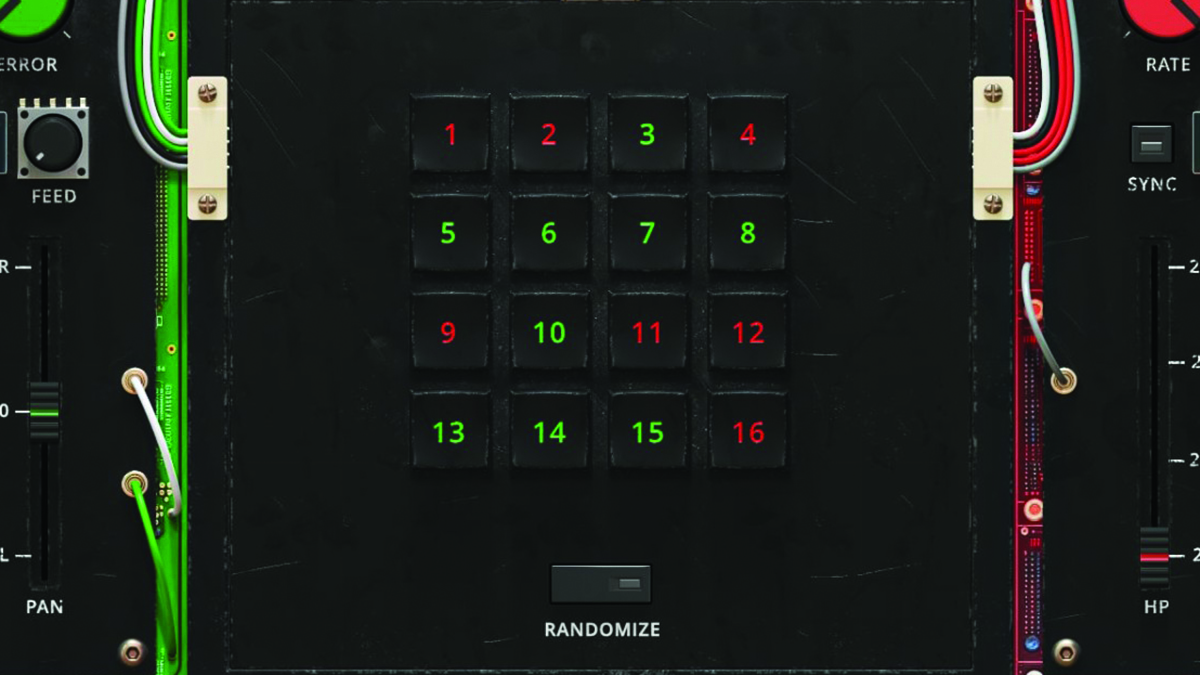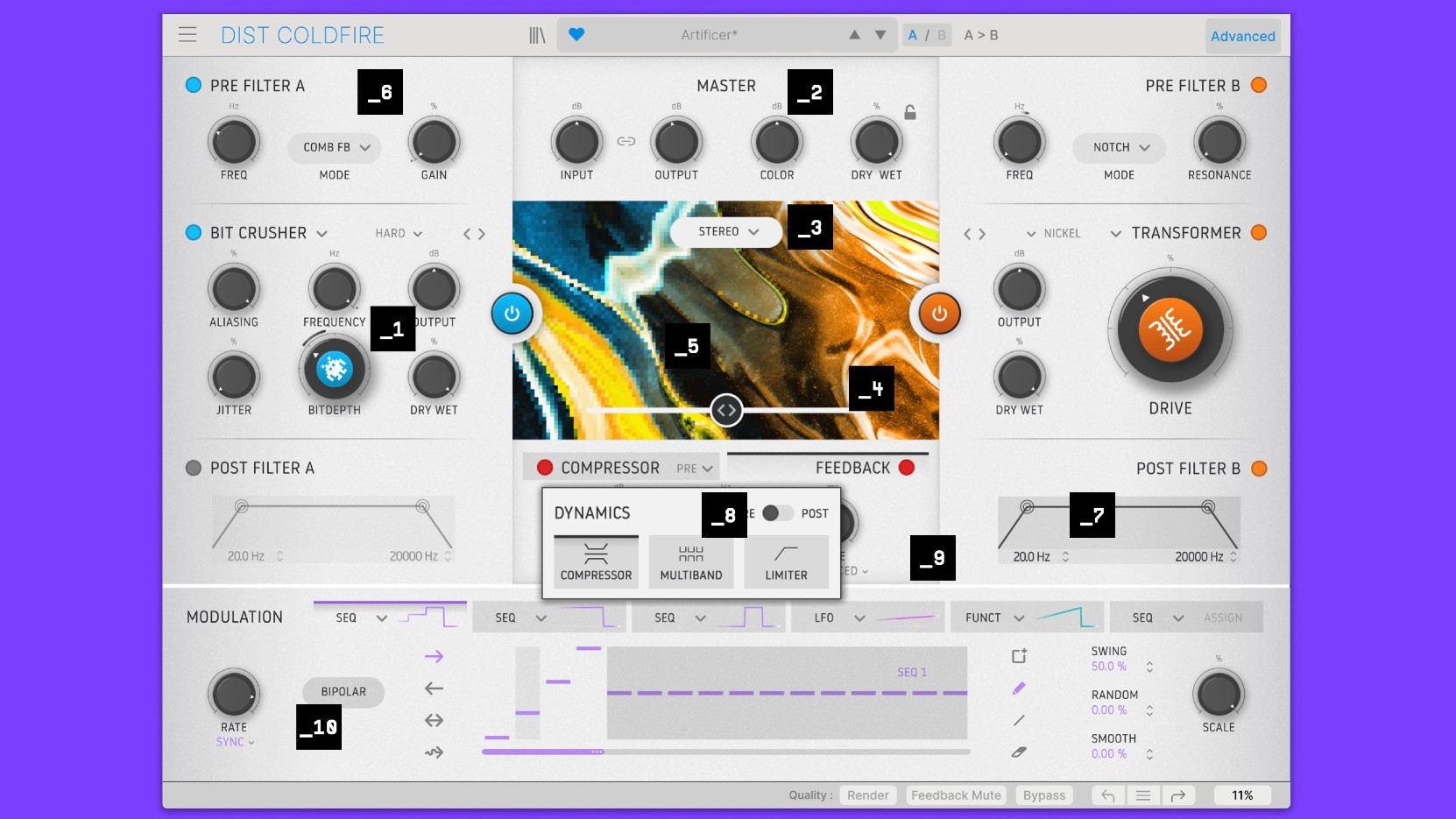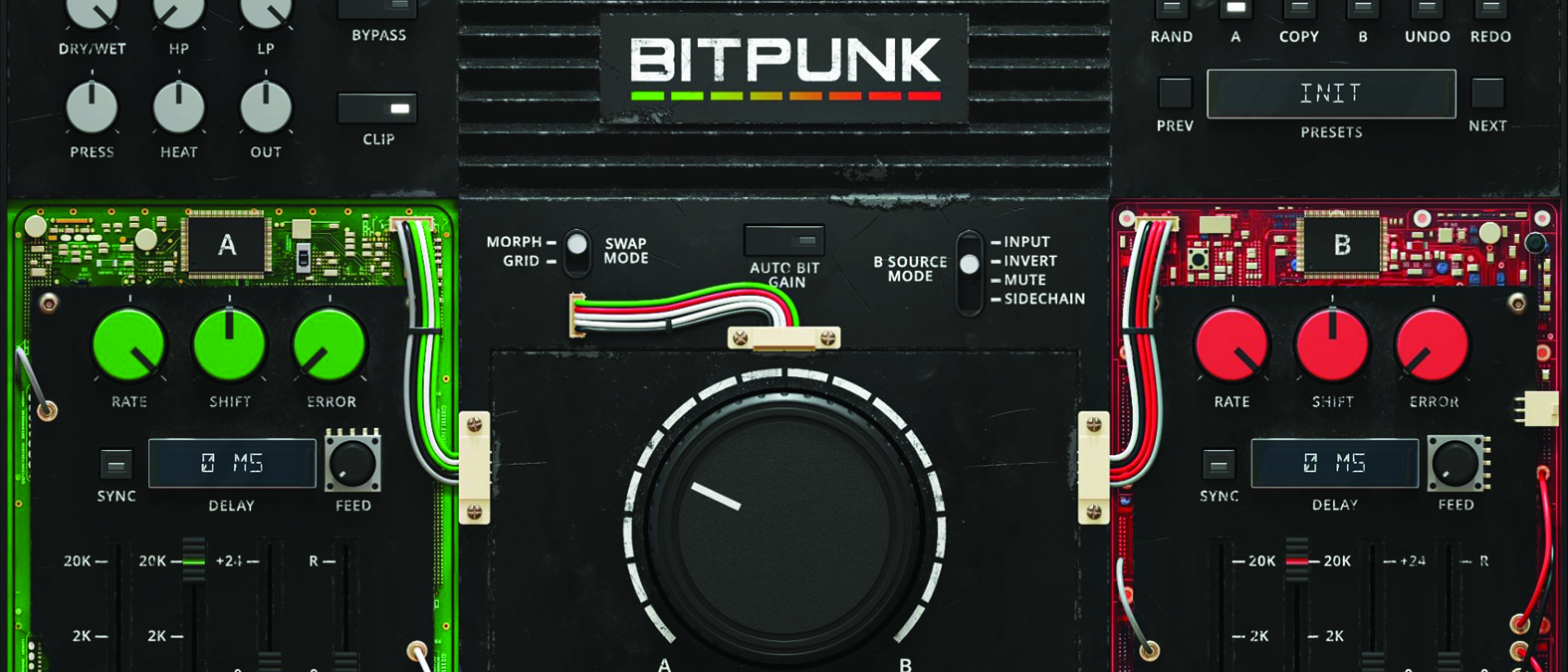MusicRadar Verdict
A bit unpredictable, but a ferocious digital degradation effect with some fun controls to help you get creative.
Pros
- +
Brutal sound and nuanced controls.
- +
Well-programmed and varied presets.
- +
Sidechain input can lead to unique sounds.
Cons
- -
A little on the unpredictable side when programming.
- -
Volume can jump abruptly.
- -
No built-in modulation.
MusicRadar's got your back
JMG Sound Bitpunk: What is it?
Digital distortion is often seen as a cold, less attractive process next to warmer-sounding analogue saturation and overdrive.
However, JMG Audio’s Bitpunk plugin gives you nuanced control over the digital degradation effect, turning harsh distortion into artful trash. It gives you two source channels and lets you swap bits from one to the other for characterful bitcrush fuzz, or out-and-out glitch destruction.

JMG Sound Bitpunk: Performance and verdict
The main signal comes in through source A, and then you can choose from several options for source B. These include Input (the same as A), Invert (which is the input inverted), Mute (for bit-muting effects akin to bit crushing), and finally sidechain where you can blend in a different signal. You’re then presented with a large dial in the centre that can be used to morph each of the 16 bits between the two channels. This is handily represented by 16 lights that transition from green to red or vice versa as you turn the dial.

• Arturia Dist ColdFire
A comprehensive distortion plugin with multiple distortion types and modulation options.
• MeldaProduction MBitFun
This free plugin lets you flip, invert and mute bits, and even use a sidechain input signal like BitPunk.
As the order of the bits makes quite a big difference to the sound of the effect, you have options for transitioning with serial, odd, even, dual, or quad selections, and you can go up or down. It sounds a little complicated, but the excellent GUI with its satisfying, circuitboard aesthetic makes it easy to follow what’s going on. If you prefer to be a bit more specific, you can switch to Grid mode, where you can toggle any of the 16 bits between each channel, and there’s also a Randomise button to mix up the selection. It’s worth spending some time in this mode as it helps you to get accustomed to the sonic information that each bit covers.
One thing to note is that the volume can vary greatly as soon as you start manipulating the bits. To help with this, there’s an Auto Bit Gain button, which is actually an auto gain algorithm that works on each individual bit to help smooth the overall volume. This definitely helps to keep things under control, but it also changes the sound somewhat, as it makes the balance going to the output a little different. As such, it might have been useful to also have a more traditional auto gain on the main output volume, which could keep things more predictable. Thankfully, there’s a hard clipper that can be switched on and off to save things going too wild, and it can also be driven for additional saturation.
Additional functions
Outside of the main bit-mangling effects, Bitpunk has a few useful extras including one-knob compression and soft-clipping saturation effects on the main output, plus low and high pass filters. These are useful for taming aggressive digital harshness when you want to then use the dry/wet control to blend distorted and dry signals. You also have an intelligent randomisation function for the entire plugin, A/B switching, undo/redo, a resizable GUI and up to 8x oversampling. There’s also a welcome sleep on silence function that reduces down CPU usage when the plugin is not receiving any audio.
The only thing we missed is some sort of modulation option like an LFO or two that could be assigned to the main dial or other effect. Granted, it’d make the plugin a bit more complicated, but sweeping any number of the controls can create some really interesting movement and effects, so it feels like a missed opportunity. Thankfully, you can automate all parameters, including switching individual bits, so there’s still fun to be had.
Want all the hottest music and gear news, reviews, deals, features and more, direct to your inbox? Sign up here.
A bit of rough
As mentioned, Bitpunk is surprisingly versatile and can create nuanced, gritty sounds. With the B source set to Input, both channels are the same, so flipping bits won’t make any difference. However, to help add some variation, both channels have several controls and effects to subtly tweak or mangle the audio, with greater differences resulting in more extreme sound design when the bits are switched. There are controls for bit depth reduction, lo-fi pitch shifting, HP and LP filters, volume, pan, and an Error dial for random stuttering and skipping plus a syncable delay with feedback control. Even if you use these effects without swapping any bits, you can get some characterful arcade sounds or lo-fi delay effects.
Make no mistake, Bitpunk is not for the faint of heart and its forte lies at the hard end of digital glitch
Once you do start on the bits though, things get very dirty, very quickly. As such, you might find the need to use the Dry/Wet control to help tame the harshness and mix the distorted and dry signals. Although you can get some more subtle delays and sizzling excitation, make no mistake, Bitpunk is not for the faint of heart and its forte lies at the hard end of digital glitch and noise production. It could be used to add unique crunch to drums, guitars, synths and vocals to give them an upfront edge in a range of genres. It can be a little unpredictable to program, but there are plenty of excellent presets that give a broader sense of what can be achieved.
MusicRadar verdict: A bit unpredictable, but a ferocious digital degradation effect with some fun controls to help you get creative.
JMG Sound Bitpunk: Hands-on demos
United Plugins
DATABROTH
Letsynthesize
JMG Sound Bitpunk: Specifications
- macOS from 10.10 Yosemite to Ventura, 64-bit. Intel/AMD/Apple Silicon CPU.
- Windows 8/10/11, 64-bit. AMD processor with SSE 2 support.
- AAX, AU, VST, VST3.
- CONTACT: United Plugins
